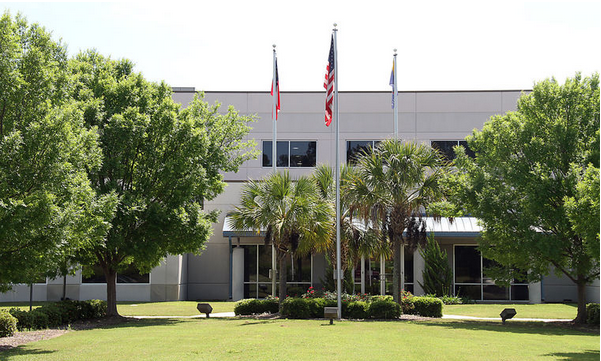
Made in Valdosta: Letica Corporation
April 27, 2015

Valdosta Daily Times, Sunday, April 26, 2015
Stuart Taylor
VALDOSTA — The story of Letica Corporation starts in Yugoslavia where Letica's founder, Ilija Letica, was living when he decided to leave the country by foot at the age of 17.
“My dad basically has a Horatio Alger story,” said Mara Letica, executive vice president for Letica. “He was very poor under the communist regime and always had dreams of the United States as being a land of liberty and opportunity.”
Ilija ended up in Germany, studying metallurgy.
He met his wife, Gudrun, and immigrated to Canada in 1955, then to the United States in 1959.
Ilija worked as a tool-and-dye maker, running his business focusing on tool and dye before starting up Letica Corporation in 1967 to make five-gallon plastic industrial shipping containers, the kind used to transport everything from paint and joint compounds to chemicals and food products.
The first major account for the company came from pickles, as Ilija went around to Michigan pickle producers, convincing some of them to switch over from their metal containers to a bright green plastic pickle container.
“The pickle farmers loved it,” said Mara. “It took off and replaced the metal containers that had been popular. ... There was a point where my dad basically almost made us have pickles with (every) dinner.”
After getting a boost from the pickle industry, Letica Corporation grew throughout the next five decades, opening facilities across the United States.
“I remember my dad taking me in his car to deliver things to customers,” said Mara. “I was able to watch him. It was a way of us spending time together. It was 100 percent dedication to realizing his dream of owning his own business and making it work.”
In 1991, Letica Corporation started a Food Service division, producing plastic products for the food services industry — plastic drink, plastic lids, etc. — while the Rigid Plastic division continued to produce the plastic containers.
“We diversified,” said Mara. “Like most businesses, you can have your ups and downs in terms of how the economy is going. The food services division was seen as a natural fit, but maybe a little bit of a stabilizer because it goes to the fast food industry primarily, which tends to have its own economic ups and down. They tend to offset each other and give us a little stability.”
In 1993, Letica Corporation bought Phillips Container in Valdosta, taking over Phillips' building lease.
“It gave us time to get to know the area, to say 'do we stay here or do we move the operations elsewhere?'
“The operations in Valdosta worked very well — the labor force was stable, very positive work ethic — so the team decided we wanted to stay there. That's when we started working with the Valdosta Lowndes Development Authority (VLDA) to find a home.”
Rail service was a key component; the resin that gets turned into containers comes in by rail car.
Letica built its current Valdosta facility in 2003, which runs 24/7, mostly producing three- to five-gallon containers
“It was expensive, but we're proud of that facility and the workforce.
“We take a very long-term view of investment. Not like public companies — not all of them, but many of them— that have managers coming in and out that all have their own short-term vision. Sometimes their strategies are short term because they just want to make their quarter or year look good. Our horizon is 20 years out, 50 years out.”
It's the company's long-term, conservative strategy that Mara credits with weathering the Great Recession.
“We're able to weather those storms about as best as can be expected because of our philosophy of not leveraging our business. If we can't pay for it, we don't buy it. We're very deliberate and strategic about the way we expand and invest in our business. My dad always said, Don't be greedy, so we're very conservative all across the board.”
While Ilija is semiretired, leaving the company in the hands of Mara and her brother, Anton, who serves as the company's president and CEO, he's still involved with the business.
“He still comes in and we're grateful that he comes in. It's wonderful," Mara said. "There's such a history, it would be hard not having him here.”

